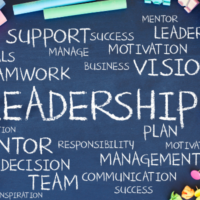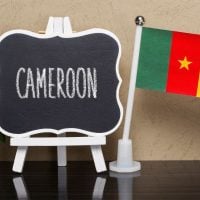Deadline: 31 July 2020
The U.S. Embassy Nur-Sultan and U.S. Consulate General Almaty Public Affairs Sections (PAS) of the U.S. Department of State are pleased to announce funding is available through the Embassy’s Public Diplomacy Grants program.
Public diplomacy programming includes communications with international audiences, cultural programming, media strengthening, educational exchanges, university partnerships, civil society engagement, and education including English language instruction, and STEM (science, technology, engineering, and math).
PAS invites proposals for projects that strengthen ties and highlight shared values between the United States and Kazakhstan through concrete demonstrations of cooperation between their two peoples. All programs must convey an element of American history, culture, or shared values. Competitive proposals should also include a connection with American expert/s, organization/s, or institution/s in a specific field that will promote increased understanding of U.S. policy and perspectives and/or increased cooperation between the people of the United States and Kazakhstan even after the program has concluded.
Priority Areas
- English Language: In line with Kazakhstan’s tri-lingualism policy, establishing English as one of three official languages of instruction, the U.S. Embassy is working to strengthen English teaching throughout Kazakhstan. PAS is seeking to support the Kazakhstan government’s work by partnering with organizations who can provide opportunities for teachers to learn improved classroom techniques and methodologies.
- Goal: Increase Kazakhstani students’ English language skills through targeted improvements to the training of English and STEM teachers.
- Ideal partners include but are not limited to: Individual teachers, universities, private non-profit institutions and NGOs
- Key Beneficiaries: Kazakhstani teachers of English or STEM, with preference given to teacher trainers or pedagogical instructors – those with greatest reach in their communities
- Examples: Programs may include trainings, seminars, workshops, conferences, etc.
- Goal: Increase Kazakhstani students’ English language skills through targeted improvements to the training of English and STEM teachers.
- Media Development: Kazakhstan has a growing and diversifying media market and a demand for objective, professional journalism. The United States supports a sovereign and independent Kazakhstan, which includes support for a more professional, independent press. With press freedom enshrined in the U.S. Constitution and a long history of innovations in the media, the U.S. seeks to support the Government of Kazakhstan’s goal of professionalizing its press corps and helping inoculate its citizens against disinformation.
- Goal: Expand the knowledge and skills of journalists and editors with innovative tools, approaches, and media trends to help deliver higher quality and objective media content, creating a better informed Kazakhstani public, which is essential to a functioning democracy.
- Ideal partners include but are not limited to: Kazakhstani NGOs working on media literacy and freedom of information, independent media outlets, journalism departments, think tanks
- Key Beneficiaries: Journalists, especially, but not limited to, Kazakh-language journalists, bloggers and new media content creators, editors, professors and students of journalism, and subject-matter experts who engage with the media on key topics
- Examples: Programs may include trainings with experts, creative hackathon-like gatherings, investigative journalism projects, etc.
- Goal: Expand the knowledge and skills of journalists and editors with innovative tools, approaches, and media trends to help deliver higher quality and objective media content, creating a better informed Kazakhstani public, which is essential to a functioning democracy.
- Cultural and Educational Projects: The United States and Kazakhstan have rich cultural traditions as shown in the visual arts, literature and storytelling, theatre and performing arts, film, music and dance. Arts activities are a great way to engage the public, especially youth, to bridge cultures, deepen cultural ties and understanding, and discuss topics of importance. The U.S. Embassy is interested in supporting arts and culture projects that strengthen cultural ties between the U.S. and Kazakhstan.
- Goal: Deepen mutual understanding between the United States and Kazakhstan through cultural, educational, and/or sports programs
- Year of Volunteerism: In light of the Government of Kazakhstan’s dedication of 2020 as a year of volunteerism, programs that share U.S. values of volunteerism will be looked upon favorably when appropriate
- Ideal Partners include but are not limited to: individuals, non-profit organizations, and/ or educational or arts institutions
- Key Beneficiaries: University staff, educators, students, artists/artisans, athletes, rural communities, underserved communities, at-risk groups, and the general public
- Examples: All awards must support the goal of mutual understanding by including a U.S. component. Programs may include debate/theatre/film making/storytelling clubs, mobile cultural projects, dance or sports performances or competitions, STEAM camps, etc.
- Goal: Deepen mutual understanding between the United States and Kazakhstan through cultural, educational, and/or sports programs
- Trafficking-in-Persons (TIP): Human trafficking is a crime that threatens human dignity and security around the globe. Kazakhstan faces a variety of challenges in addressing human trafficking as a country of origin, a transit country, and a destination country. A top priority of the U.S. Embassy in Kazakhstan is to support the Government of Kazakhstan in combatting trafficking in persons by working with local partners. PAS is looking to support current and/or future anti-trafficking initiatives, including to spread awareness on a variety of recent Government of Kazakhstan initiatives, including a new anti-trafficking plan and a victim compensation fund.
- Goals: Projects may address one or more of the following goals:
- Goal 1: Increase efforts to identify and assist trafficking victims, particularly foreign and forced labor victims
- Goal 2: Increase support for investigating TIP crimes
- Goal 3: Increase support for changes to legislation and policies that support foreign and domestic victims of TIP
- Ideal Partners include but are not limited to: Human rights organizations, shelters, civil society organizations, and subject matter experts
- Key Beneficiaries: Kazakhstani victims of trafficking, foreign and forced labor victims, at-risk groups, and the general public
- Examples: Programs that facilitate cooperation between law enforcement and organizations that support TIP victims; increase victims’ awareness of their rights; focus on improving public awareness of Government of Kazakhstan’s anti-trafficking initiatives; conduct advocacy for victims of trafficking; provide training to help identify potential victims of trafficking
- Goals: Projects may address one or more of the following goals:
- Civil Society: The U.S. Government believes that a strong democracy supports key values, such as respect for civil and human rights, inclusion, empowerment of underserved communities, including women, respect for the rule of law, social justice, and the promotion of grassroots problem solving, from volunteerism to entrepreneurship. Through this award, the Public Affairs Section at U.S. Mission Kazakhstan aims to partner with individuals and organizations who will work with U.S. organizations or will use U.S. models that advance these issues of importance to local communities.
- Goal: Promote projects that enhance respect for democratic values and fundamental freedoms.
- Ideal Partners include but are not limited to: Civil Society organizations, NGOs, organizations that support the entrepreneurship ecosystem (incubators, mentorship programs, etc.)
- Key Beneficiaries: Under-served communities, entrepreneurs, human rights activists, etc.
- Examples: Programs may include trainings, mentorship programs, public awareness, campaigns, skills training programs, etc.
- Goal: Promote projects that enhance respect for democratic values and fundamental freedoms.
- Air Quality: Kazakhstan faces growing air quality issues, particularly in its major cities of Almaty and Nur-Sultan. There is a lack of public understanding of the economic costs of air pollution and the public health benefit to improving air quality. The United States has been a leader in the adoption of green technology, public policy, and public health campaigns to address air quality in major U.S. cities. The Public Affairs Sections aim to share lessons the United States has learned while addressing this issue and support Kazakhstanis in advocating for solutions in Kazakhstan.
- Goals: Projects may support one or more of the following goals:
- Goal 1: Increase public understanding of the economic and public health benefits of improving air quality
- Goal 2: Increase public understanding of air quality data so people can make more informed decisions about their health
- Goal 3: Support civil society and experts in advocating for public policy changes to improve air quality
- Ideal partners include but are not limited to: Universities, media outlets, civil society organizations, NGOs
- Key Beneficiaries: People in major cities and other cities experiencing air quality issues
- Examples:
- Emissions inventories, including using existing modeling techniques to conduct, publish, and implement outreach campaigns educating the public about actual sources of significant pollution, versus presumed sources
- Outreach campaigns, highlighting the actual economic costs and benefits of improving air quality, focusing on economic and morbidity data
- Speaker and exchange programs sharing the U.S. experience in improving air quality and U.S. green technology
- Public health campaigns educating people on precautions to take when air quality is unhealthy
- Training on grassroots organizing and advocacy
- Goals: Projects may support one or more of the following goals:
Preference will be given to projects that:
- Engage underserved geographic regions and communities in Kazakhstan, as well as non-elite schools (if possible);
- Result in joint deliverables or performances between U.S. and Kazakhstani participants and/or solve problems of mutual interest.
- Yield concrete results.
Funding Information
- Floor of Individual Award Amounts: $5,000
- Ceiling of Individual Award Amounts: $50,000
- Anticipated period of performance: 9-12 months
Eligibility Criteria
- The U.S. Embassy Nur-Sultan and U.S. Consulate Almaty Public Affairs Sections encourage applications from U.S. and Kazakhstan registered not-for-profit, civil society/non-governmental organizations, educational institutions, and individuals with at least one year of programming experience desired.
- This experience should be documented in the organization’s proposal. A copy of the organization’s registration should be provided with the proposal application. U.S.-based organizations should submit a copy of their IRS determination letter.
- Kazakhstan-based organizations should submit a copy of their certificate of registration from the appropriate government organization.
Please ensure:
- The proposal clearly addresses the goals and objectives of this funding opportunity
- All documents are in English
- All budgets are in U.S. dollars
- All pages are numbered
- All documents are formatted to 8 ½ x 11 paper, and
- All Microsoft Word documents are single-spaced, 12 point Times New Roman font, with a minimum of 1-inch margins.
For more information, visit https://www.grants.gov/web/grants/view-opportunity.html?oppId=325296









































